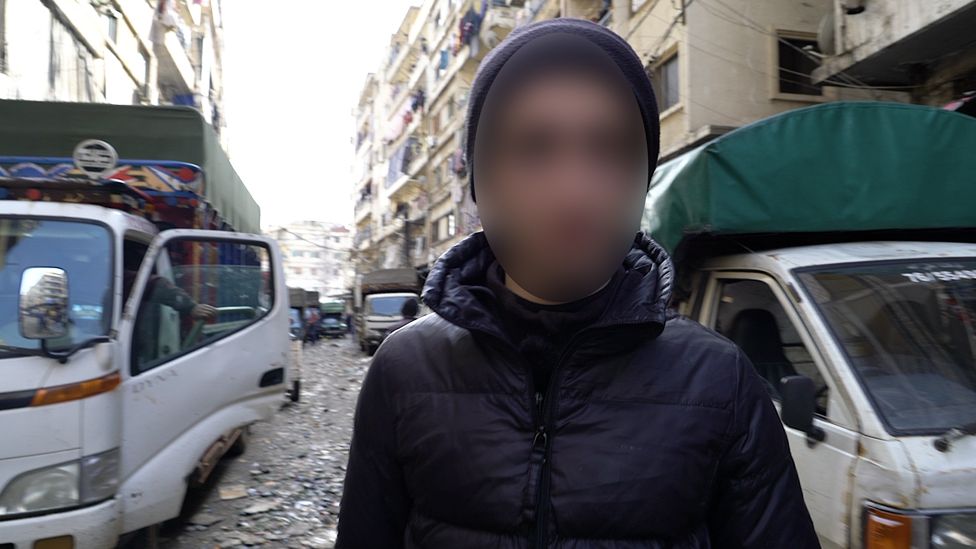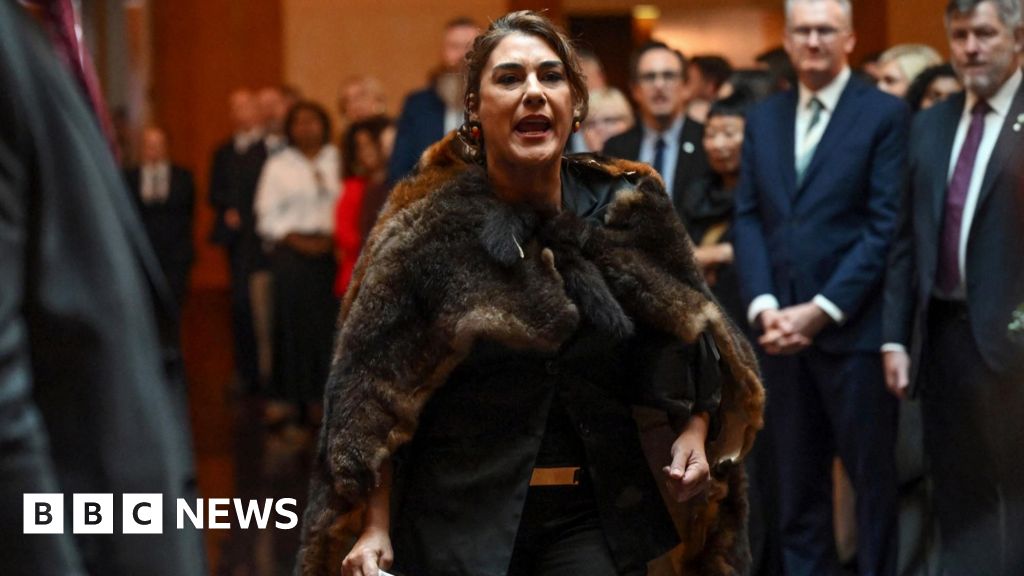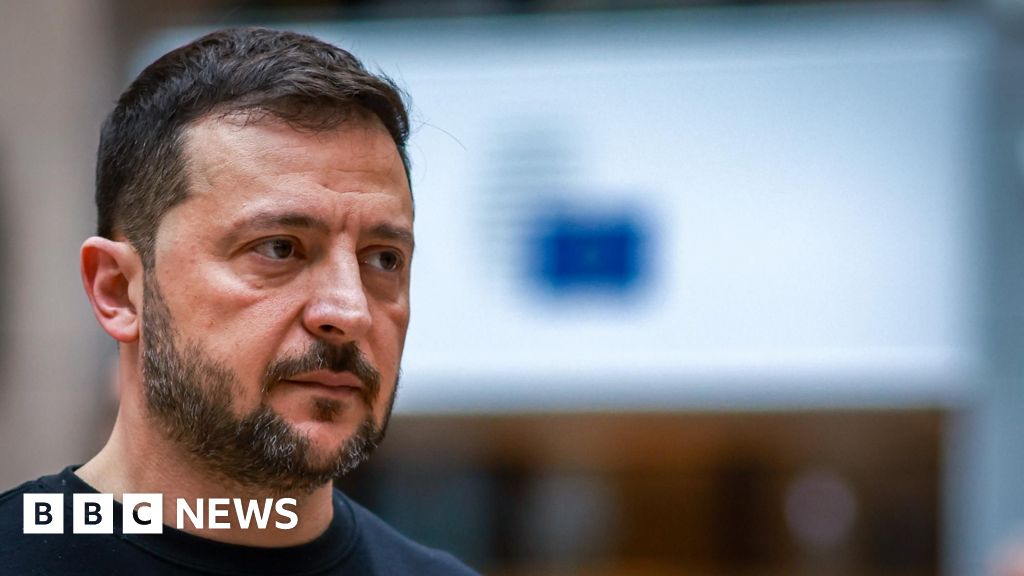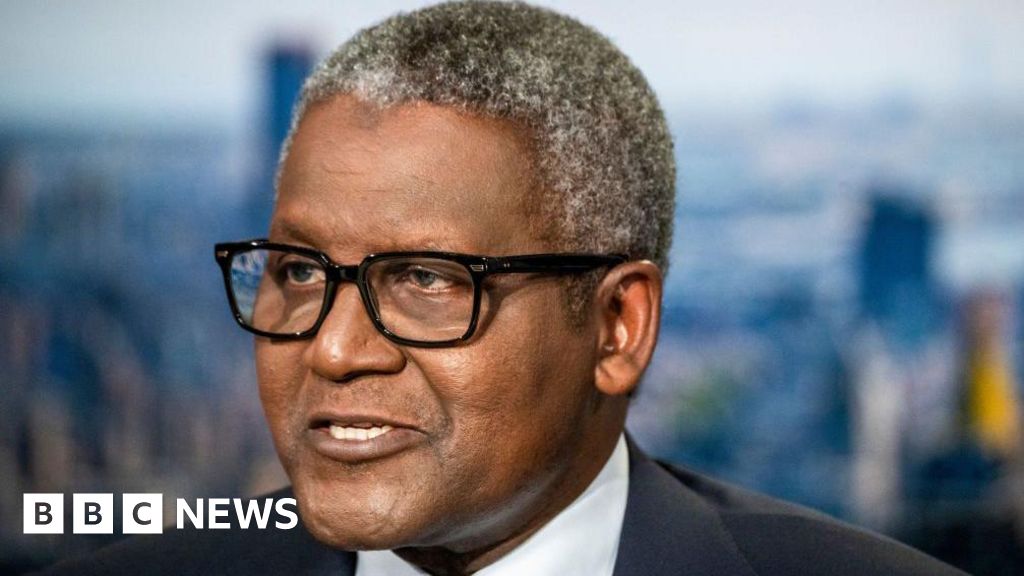ARTICLE AD BOX

Ahmed says he tried to join the terrorist organisation the Islamic State so that he could live a more comfortable life
By Anna Foster & Jewan Abdi
BBC News, Tripoli
Ahmed is still a teenager, but instead of studying he spends every day at work.
He lives in the northern Lebanese city of Tripoli, one of the poorest places on the Mediterranean. Despite the hours he puts in, he leaves with just a few dollars a week. He needs to support his sick mother, but his back-breaking manual job earns him barely enough to feed them both.
That sense of hopelessness led him to search for a way out. In an internet café in Tripoli, he began chatting to a man who told Ahmed he was a recruiter for the Islamic State group - the radical Sunni Islamist militants who once controlled large swathes of territory in Syria and Iraq, and who have committed atrocities and terror attacks throughout the region and around the world.
"I was studying Sharia [Islamic laws], and day after day they taught us about jihad," Ahmed told me. "They told us about Iraq and the Islamic State group [IS]. We loved IS, because it was famous. I was contacted by a man in prison, and he told me 'I'm going to send you there'."
Slight and quietly-spoken, it's hard to imagine Ahmed being a fighter. We talked about the terrible crimes that the group had committed, and I pressed him to explain why he would want to be a part of something like that.
"I wanted to join IS and be a mujahid because I couldn't cope with the crisis here", he answers slowly. "Then I would get close to my God, and live comfortably, and not always be worried about the cost of living."
Ahmed had made his decision. He told the recruiter he wanted to sign up, to leave Lebanon and travel to fight for the group in Iraq and Syria. But within hours, he was picked up by the police and arrested. Lebanese Army intelligence officers questioned him for five days before he was released. It made him regret his choice, but he still doesn't have a solution to his many problems.
"It makes me want to kill myself. I owe people money that I borrowed to get furniture for my room but I can't afford to give it back. We don't know what will happen in the future."
In Tripoli's backstreets, hope is in short supply. So is electricity, water, fuel, medicines and jobs. In the last year, around a hundred young Lebanese men are said to have joined IS. It's not only about signing up to the extreme ideology the group represents. They're trying to escape the grinding poverty of a country in crisis.
For many, their religious sect or family background means opportunities are closed to them. That struggle for survival has seen some young men take desperate measures.
Nabil Sari is a prominent judge in Tripoli. He's dealt with these cases before.
"There are no job opportunities, no school or study opportunities. And some of those who joined IS because of that, they regretted it, and tried to contact their families to come back - but they can't."
BBC
Normally people join IS from European countries because of an ideology, or personal reasons. But for the people who join from here, it's because of the poverty.
The Islamic State group is far from the force it once was in the Middle East. For a time it controlled a swathe of land which it designated a caliphate [an Islamic State] across Syria and Iraq. The bulk of the group was defeated in a bloody battle in the Syrian town of Baghouz in 2019.
But the small remainder who weren't killed or imprisoned continue to attack targets in the areas it once held. And earlier this year, reports of those attacks started to contain details of Lebanese perpetrators.
Mohammad Sablouh is a lawyer who represents several of their families. Together we headed to Wadi Khaled where many of the missing men lived. It's a tough area, mired in poverty. Children play all day with makeshift toys in dusty alleyways. The crisis means many don't get the chance to go to school.
"Here is separated from the state," Mohammed explained. "Look at these poor areas. Nobody cares about it. The country is not doing its duty towards its citizens. And this poor class will be used and be recruited for IS."
A year ago, Bakr Saif vanished. He was weeks away from getting married. Although he'd been arrested and spent time in prison, he was building a future with his fiancée. He didn't tell his mother Umm Saif he was planning to leave.
"He told us he was going to see his fiancée, and would be back at noon," she told me, her eyes filling with tears. "And he went, and he never came back."
"We heard the news on social media," his father Mahdi continues. "It was on all of our phones. We just didn't believe it. And then everybody started to shout and cry." Umm pauses and wipes her eyes. "He was happy in life, he was preparing for is wedding and he was happy. He'd been released from prison. He was a very good guy. Respectful. Polite. Whatever I say you might say 'She's his mother', but this is the truth."
Less than a month later, Umm received a voicemail. A sinister, computer-altered voice told her that her son had been killed fighting for IS in Iraq. Unusually, it described him as "killed" rather than "martyred", the latter being much more like the language a genuine IS message would use.
Bakr's parents don't believe the voicemail, or what the Lebanese authorities have told them about his fate. They think he never left Lebanon, and remains hidden in custody somewhere in the country. Bakr's father Mahdi showed me into his son's flat. It's neat and tidy, but empty, and feels abandoned. The gold-wrapped chocolates Bakr bought ready for his wedding still lie on a display stand, uneaten.
Bakr Saif was weeks away from getting married when he disappeared, his parents say
The Iraqi army says Bakr left Lebanon and travelled there to join IS. They claim he was involved in a militant attack on an army base in Diyala that killed 10 soldiers. Days later nine IS members were killed in a retaliatory air strike by Iraqi forces. Half of them were Lebanese.
The Iraqi forces say Bakr was one of them. They insist they're completely sure of his identity, and say they carry out DNA testing on the bodies of those they kill to confirm it. I spoke to Iraqi Army General Yahya Rasoul Abdulla about the men who are leaving Lebanon to join IS. He had strong words for them.
"My message to the Arab world, and specifically to the Lebanese youth, is that this terrorist organisation is using you as wood for the fire. You can see and ask the Iraqi people who lived under IS control - they were killing people, raping women, enslaving women, destroying heritage, destroying all infrastructure, they even destroyed the prophet's graves. Don't be the fuel for their wars, don't be used by them.
"The Iraqi army are everywhere. Wherever this organisation is going, in the desert, the mountains, the valleys, we will chase them and we will kill them."
Iraqi Army General Yahya Rasoul Abdulla had strong words for those leaving Lebanon for ISIS
From a peak at the start of this year, the numbers joining IS have begun to slow. The stories of those who left are now well-known in Tripoli, and that makes the prospect of following them less enticing.
But as Lebanon continues to struggle with its crippling financial crisis, and its politicians stall on forming a new government months after the country's elections, life isn't getting any easier. And so the IS recruiters continue to circle, hoping to attract a new intake of disenfranchised Lebanese youth.

 2 years ago
26
2 years ago
26








 English (US)
English (US)